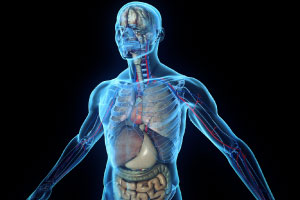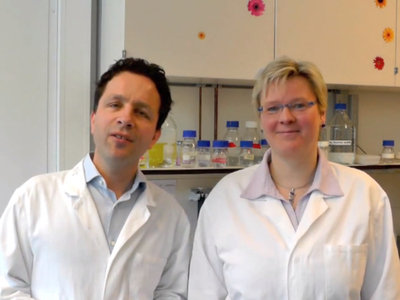Online courses directory (423)
Gain an understanding of the natural world, how the web of life works, with illustrations from around the world.
Use your kitchen as a laboratory to learn about chemistry using everyday chemicals.
Making decisions about managing natural resources can be difficult; this course explores why fairness needs to be part of policy.
Great advances have been made in the field of anatomy and physiology of the human body. ALISON's free online diploma course introduces you to the basic anatomy and physiology of important systems in the body such as the cardiovascular system, respiratory system, reproductive system, skeletal system, nervous system and others. For each system covered in the course, the anatomical features are outlined and the physiological functions are explained. <br /><br />ALISON's anatomy online course will be of great interest to students of anatomy, physiology, biomedical science and medicine, as well as any learner wanting to expand their knowledge and understanding of the human body.<br />
Learn to differentiate between DNA and RNA and between mitosis and meiosis through Education Portal's chapter on basic genetics. Our team of professional educators, who have experience in biology, designed the video lessons in this chapter to be brief and easy to follow. You'll get an overview of genetics before exploring more complex topics, like DNA mutation and comparative genomics. Other topics covered in this chapter include cloning and genetic modification. To be sure you've mastered the material covered in each video lesson, you can take the accompanying self-assessment quiz. Biology 102: Basic Genetics can help you prepare for the Excelsior College Basic Genetics exam ; passing this exam can earn you actual college credit.
The MIT Biology Department core courses, 7.012, 7.013, and 7.014, all cover the same core material, which includes the fundamental principles of biochemistry, genetics, molecular biology, and cell biology. Biological function at the molecular level is particularly emphasized and covers the structure and regulation of genes, as well as, the structure and synthesis of proteins, how these molecules are integrated into cells, and how these cells are integrated into multicellular systems and organisms. In addition, each version of the subject has its own distinctive material.
7.012 focuses on the exploration of current research in cell biology, immunology, neurobiology, genomics, and molecular medicine.
Acknowledgments
The study materials, problem sets, and quiz materials used during Fall 2004 for 7.012 include contributions from past instructors, teaching assistants, and other members of the MIT Biology Department affiliated with course #7.012. Since the following works have evolved over a period of many years, no single source can be attributed.
Biology 101: Intro to Biology is designed to be used to prepare you to earn real college credit by passing the Biology CLEP exam . This course covers topics that are included on the exam, such as genetics, physiology, plant and animal biology, ecology and evolution. Use it to help you learn what you need to know about biology topics to succeed on the exam.
The biology instructors are experienced and knowledgeable educators who have put together comprehensive video lessons in categories ranging from Mendel's first law to the anatomy of the brain. Each category is broken down into smaller chapters that will cover topics more in-depth. These video lessons make learning fun and interesting. You get the aid of self-graded quizzes and practice tests to allow you to gauge how much you have learned.
This introductory course defines biology and its relationship to other sciences. We examine the overarching theories of life from biological research and also explore the fundamental concepts and principles of the study of living organisms and their interaction with the environment. We will examine how life is organized into hierarchical levels; how living organisms use and produce energy; how life grows, develops, and reproduces; how life responds to the environment to maintain internal stability; and how life evolves and adapts to the environment. This course is a part of our Community College (CC-OLI) series. Courses in this series are particularly well-suited to the needs of introductory community college courses, but are open for use by any instructor or student.
Explore the world of football, its role in the world today, finances, clubs, nations, rivalries and much more.
DNA stores our genetic information and many diseases are caused by changes in its sequences. We will first learn about the basics of DNA and then find out how it allows for the development of diagnostic and therapeutic strategies.
Interaktiver MOOC mit Operationsvideos der Universität Tübingen. Chirurgen aller Fachrichtungen und Anatomen erklären das zentrale Fach der Medizin im chirurgisch-operativen Kontext.
Interaktiver MOOC mit spannenden anatomischen und medizinischen Videos der Universität Tübingen. Anatomen und Kliniker erklären die Anatomie der Kopf- und Hals-Region im klinischen und chirurgisch-operativen Kontext.
Fundamentals of Biology focuses on the basic principles of biochemistry, molecular biology, genetics, and recombinant DNA. These principles are necessary to understanding the basic mechanisms of life and anchor the biological knowledge that is required to understand many of the challenges in everyday life, from human health and disease to loss of biodiversity and environmental quality.
Course Format
 This course has been designed for independent study. It consists of four units, one for each topic. The units can be used individually or in combination. The materials for each unit include:
This course has been designed for independent study. It consists of four units, one for each topic. The units can be used individually or in combination. The materials for each unit include:
- Lecture Videos by MIT faculty.
- Learning activities, including Interactive Concept Quizzes, designed to reinforce main concepts from lectures.
- Problem Sets you do on your own and check your answers against the Solutions when you're done.
- Problem Solving Video help sessions taught by experienced MIT Teaching Assistants.
- Lists of important Terms and Definitions.
- Suggested Topics and Links for further study.
- Exams with Solution Keys.
Content Development
Eric Lander
Robert Weinberg
Tyler Jacks
Hazel Sive
Graham Walker
Sallie Chisholm
Dr. Michelle Mischke
Other Versions
Other OCW Versions
OCW has published multiple versions of this subject. ![]()



















